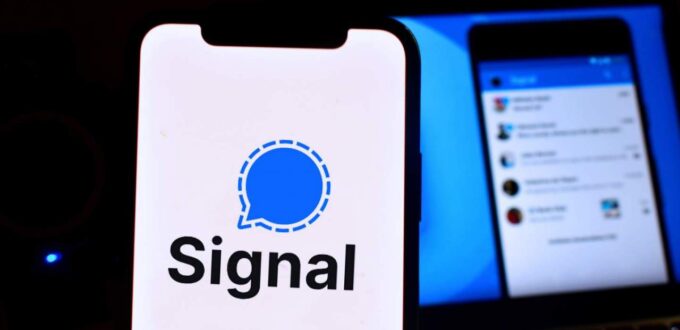Signal is a popular messaging application that competes with WhatsApp and Telegram, provides users with encrypted end-to-end communication (E2EE). Since Edward Snowden revealed how many governments and intelligence agencies do mass supervision, the interest in E2e has exploded. E2ee is considered a standard gold communication safe, encrypt it so that only senders and recipients can read communication. Theoretically, even service providers can even access any message between the two parties.
The signal has established itself as one of the safest E2EE messaging platforms available and, thus, drawing comparisons to WhatsApp and Telegram, also messaging applications with E2EE. In fact, the WHATSAPP Co-Founder Brian ACTon invested $ 50 million signals, touting privacy and security provided users.
Regardless of their similarity, there are a number of features that set a signal regardless of its competitors, features that must be known and understood by each user.
Signal reputation for security is second to none, and far superior to its main competitors.
In fact, the document recently released shows the FBI can collect real-time data from the WhatsApp conversation (through Rolling Stone). In fairness, WhatsApp also uses E2EE, so the actual message content is still encrypted. Even so, other private metadata captured, including which users talk to each other, when they speak, and which users are in their address book.
Apple iMessage is even worse, especially if the user allows messages in iCloud. Without iCloud backup, the message is still leaking on metadata but stores the actual message content encrypted. Unfortunately for users, iCloud’s backup has no E2EE. As a result, if the user has a message in iCloud enabled, the FBI can get an interesting warrant Apple to reverse iCloud’s backup that contains complete user message data.
Instead, the signal gives almost no information about its users, let alone their message content. The only data that the FBI can collect from the signal is when the user signs up for the account, and when they last entered the service. There is no data about who they communicated, when they communicate, or the contents of the communication can be described.
Signal security is very good so that the US Senate and the EU Commission rely on it, and the US military recommends its members also (through signals).
The security signal level provides not coming without a few trade-offs, especially in the realm of convenience.
While both iCloud and WhatsApp provide ways to back up and restore their chat, the signal does not have such a mechanism – for clear reasons, considering the FBI relies on iCloud reserves to get access to these messages. As a result, when users want to move to a new phone, they need to have an old cellphone to manually start the device-to-device message transfer. If the original device is lost, it cannot be turned on, or has been removed, there is no way to migrate past signal messages to a new phone (via signal).
Similarly, because the message data is stored locally on each device, there is no way to synchronize past data with secondary devices. For example, if the user wants to install the signal on the iPad or their computer, the device will only have access to messages sent and received after the signal is installed on them. All previous messages on mobile users cannot be synchronized to a new secondary device.
Because the signal pays seriously paying, by default it encourages users to create a PIN number and then remind them to enter the PIN every few days. While the idea is to ensure the right user is to access the signal, enter the pin every few days can be annoying for individuals who are not familiar with it. Fortunately, this special feature can be turned off in the settings.


No Comments Yet